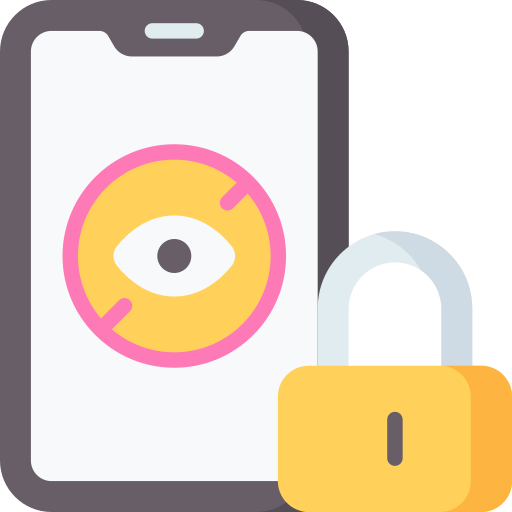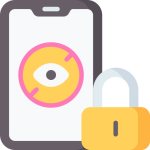The Importance of Internet Safety for Children
The internet has become an integral part of our daily lives, providing us with endless possibilities and opportunities. However, while it offers a wealth of information and entertainment, it also exposes children to various risks and dangers. Ensuring internet safety for children is of paramount importance in today’s digital age.
The internet can be a haven for predators, cyberbullies, and inappropriate content. Without the necessary precautions, children can easily become targets or fall victim to online scams and deceitful practices. By teaching children about internet safety, parents and guardians can equip them with the knowledge and skills they need to navigate the online world responsibly and protect themselves from potential harm. Instilling safe internet habits from a young age is crucial for safeguarding children’s online experiences and overall well-being.
Understanding the Risks and Dangers of Unrestricted Online Access
With the rapid rise of technology, unrestricted online access has become a norm, especially among children. However, it is vital for parents and guardians to understand the risks and dangers associated with this unfiltered access. One of the most concerning risks is exposure to inappropriate content. The internet is a vast platform that contains a wide range of content, not all of which is suitable for young eyes. Without proper restrictions and monitoring, children can easily stumble upon explicit material, violence, or other harmful content that can negatively impact their mental and emotional well-being.
Moreover, unrestricted online access also leaves children vulnerable to cyberbullying and online predators. Social media platforms, chat rooms, and online gaming communities provide spaces where individuals can interact, but they also present opportunities for harmful behavior. Children may fall victim to cyberbullying, where peers use technology to harass, intimidate, or humiliate them. Additionally, online predators may exploit children’s innocence and trust, leading to dangerous situations. Without the necessary safeguards in place, children are at a greater risk of encountering these harmful entities online.
Setting Boundaries: How to Establish Age-Appropriate Internet Usage Rules
With the rapid advancement of technology, it has become essential for parents to establish age-appropriate internet usage rules for their children. Setting boundaries on internet access helps to protect children from the various risks and dangers that exist online. By implementing these rules, parents can create a safe and secure environment for their children to explore the digital world.
To establish age-appropriate internet usage rules, parents should consider the developmental stage of their children. Younger children may require more restrictive rules and closer monitoring, while older children can be given more independence and freedom within certain boundaries. It is important for parents to communicate these rules clearly and consistently, emphasizing the reasons behind them and the potential consequences of violating them. By doing so, parents can help children understand the importance of responsible internet use and help them develop the necessary skills to navigate the online world safely.
Choosing the Right Parental Control Software for Your Family
When it comes to ensuring the online safety of your children, choosing the right parental control software is of utmost importance. With the vast range of options available in the market, it might seem like a daunting task. However, by considering a few key factors, you can find the perfect fit for your family’s needs.
Firstly, it is essential to evaluate the features offered by different parental control software. Look for features such as website filtering, social media monitoring, and time limits that align with your specific requirements. Some software also offers location tracking and remote control features, which can be beneficial for parents who want to keep a close eye on their child’s online activities. Additionally, consider the compatibility of the software with various devices and operating systems to ensure seamless integration and ease of use.
Monitoring Online Activities: Balancing Privacy and Safety
When it comes to monitoring online activities, finding the right balance between privacy and safety can be challenging for parents. On one hand, parents want to protect their children from exposure to inappropriate content or online predators. On the other hand, they also want to respect their children’s privacy and foster a sense of independence.
One approach to achieving this balance is open communication and setting clear expectations. By having regular conversations about online safety, parents can help their children understand the risks involved and the importance of responsible online behavior. This allows parents to monitor their children’s online activities without invading their privacy, as children are more likely to self-regulate their behavior when they are aware of the consequences. Another effective strategy is to establish specific guidelines for sharing personal information online and encourage children to ask for help or guidance if they come across something that makes them uncomfortable. By maintaining an open dialogue and setting these boundaries, parents can strike a balance between privacy and safety in the online world.
Blocking Inappropriate Content: Filtering Tools and Techniques
One of the key aspects of ensuring internet safety for children is blocking inappropriate content. With the vast amount of information and media available online, it is crucial to have effective filtering tools and techniques in place to protect children from accessing harmful or inappropriate material. These tools work by blocking or filtering out content that may not be suitable for young audiences, such as explicit images, violence, or adult-oriented websites.
There are various filtering techniques that can be employed to restrict access to inappropriate content. One common approach is to use web filtering software, which can be installed on devices to monitor and block certain websites or categories of content. This software can be customized to fit the specific needs of each family, allowing parents to set age-appropriate restrictions and blacklists. Additionally, many internet service providers offer parental control features, which enable parents to block certain websites or limit access to specific types of content across all devices connected to their network.
Overall, implementing filtering tools and techniques is an essential step in protecting children from accessing inappropriate content online. By utilizing web filtering software and taking advantage of parental control features, parents and guardians can create a safer online environment for their children, allowing them to explore the internet with peace of mind.
Managing Screen Time: Strategies for Limiting Excessive Device Use
In today’s digital age, managing screen time for children has become a pressing concern for many parents. With the rise in access to electronic devices and online content, it is important for parents to establish strategies to limit excessive device use. One effective approach is to set clear boundaries and rules around screen time. This can be done by allocating specific timeframes for device usage, such as allowing an hour of screen time after completing homework or setting limits on the number of hours spent on devices per day. By establishing these boundaries, parents can help their children develop healthy habits and ensure a balance between online activities and other aspects of their lives.
Another effective strategy for managing screen time is to encourage alternate activities. Providing children with engaging alternatives to screens, such as outdoor play, reading, or engaging in hobbies, can help reduce their reliance on electronic devices. It is also important for parents to model healthy screen habits themselves. By demonstrating a balanced approach to device use, parents can encourage their children to do the same. Additionally, parents can consider using parental control tools and apps to regulate screen time and block access to certain apps or websites during designated times. However, it is crucial to strike a balance between monitoring and allowing children to exercise their independence and privacy. Communicating openly with children about the importance of limiting screen time and explaining the potential risks associated with excessive device use can go a long way in instilling responsible digital habits in them. By implementing these strategies, parents can help their children develop a healthy relationship with technology and make responsible choices when it comes to screen time.
Educating Children about Online Safety: Tips for Open Communication
In today’s digital age, it is crucial for parents to educate their children about online safety. Open communication between parents and children plays a vital role in ensuring that young ones understand the potential risks and dangers lurking on the internet. By establishing a safe and non-judgmental environment, parents can encourage their children to share their experiences, ask questions, and seek guidance when needed.
One tip for fostering open communication about online safety is to have regular conversations with your children about their online activities. Ask them about their favorite websites, apps, and social media platforms they use, and show genuine interest in their digital lives. This will not only help you identify any potential risks but also create a foundation for ongoing discussions about online safety. Additionally, encourage your children to report any suspicious or uncomfortable online encounters without fear of punishment. By nurturing trust and listening attentively to their concerns, parents can guide their children towards making responsible choices and staying safe online.
Keeping Up with the Latest Online Trends and Risks
The digital landscape is constantly evolving, bringing with it new online trends and risks that parents need to be aware of. Staying up to date with these changes is crucial in order to effectively protect children from potential dangers. From the emergence of social media platforms to the rise of online gaming communities, it is essential for parents to keep themselves educated about the latest online trends their children may be exposed to.
Understanding the risks associated with these trends is equally important. Cyberbullying, online predators, and exposure to inappropriate content are just a few examples of the dangers that children may face online. By keeping abreast of the latest online trends, parents can better understand the potential risks and implement appropriate safety measures. This includes staying informed about popular websites, apps, and social media platforms that their children are likely to use, as well as being aware of the potential dangers associated with each platform.
Empowering Children to Make Responsible Digital Choices
In today’s digital age, it is crucial to empower children to make responsible choices when navigating the online world. Teaching them about the importance of digital citizenship can go a long way in ensuring their safety and well-being. By educating them about the potential risks and consequences associated with their online actions, they can develop the skills needed to make informed decisions.
One way to empower children is to promote open communication about their online experiences. Encourage them to share any concerns or encounters they may have had while using the internet. By providing a safe and non-judgmental space for them to express themselves, they will feel more comfortable seeking guidance when faced with difficult situations. It is also important to remind them that their online actions have real-life consequences, just like their offline actions. By instilling this sense of responsibility early on, children can be empowered to make choices that align with their values and protect their digital well-being.
Why is internet safety important for children?
Internet safety is important for children as it helps protect them from various risks and dangers that exist online, such as cyberbullying, inappropriate content, online predators, and identity theft.
What are some of the risks and dangers of unrestricted online access for children?
Unrestricted online access can expose children to cyberbullying, online predators, inappropriate content, scams and fraud, and the potential loss of privacy.
How can I establish age-appropriate internet usage rules for my children?
Setting boundaries is crucial. Start by considering your child’s age, maturity level, and online activities. Set clear guidelines on internet usage, including time limits, websites/apps allowed, and rules for sharing personal information.
How do I choose the right parental control software for my family?
When selecting parental control software, consider features like content filtering, time management, monitoring capabilities, and compatibility with your devices. Read reviews, compare different options, and choose software that suits your family’s needs.
What is the balance between privacy and safety when monitoring online activities?
Monitoring online activities is important to ensure your child’s safety. However, it is essential to strike a balance between monitoring and respecting their privacy. Openly communicate with your child about monitoring and set clear expectations.
What tools and techniques can be used to block inappropriate content?
Parental control software often includes content filtering features that block inappropriate content. Additionally, you can manually adjust settings on devices and web browsers to limit access to such content.
How can I manage my child’s screen time and limit excessive device use?
Set specific screen time limits for different devices and activities. Encourage breaks, establish device-free zones, and lead by example. Utilize built-in device features or third-party apps to enforce time limits.
How can I educate my children about online safety through open communication?
Foster open communication with your child by discussing online safety, potential risks, and responsible digital behavior. Encourage them to ask questions, share experiences, and involve them in decision-making regarding internet usage.
How can I stay updated on the latest online trends and risks that may affect my child?
Stay informed by regularly researching and reading about online trends, risks, and popular apps/social media platforms. Follow reputable sources, participate in parent communities, and engage with your child’s online activities.
How can I empower my children to make responsible digital choices?
Teach them about critical thinking, safe online practices, and the importance of respecting others’ privacy. Encourage them to make informed decisions, be kind online, and seek help when needed. Provide guidance and support as they navigate the digital world.




